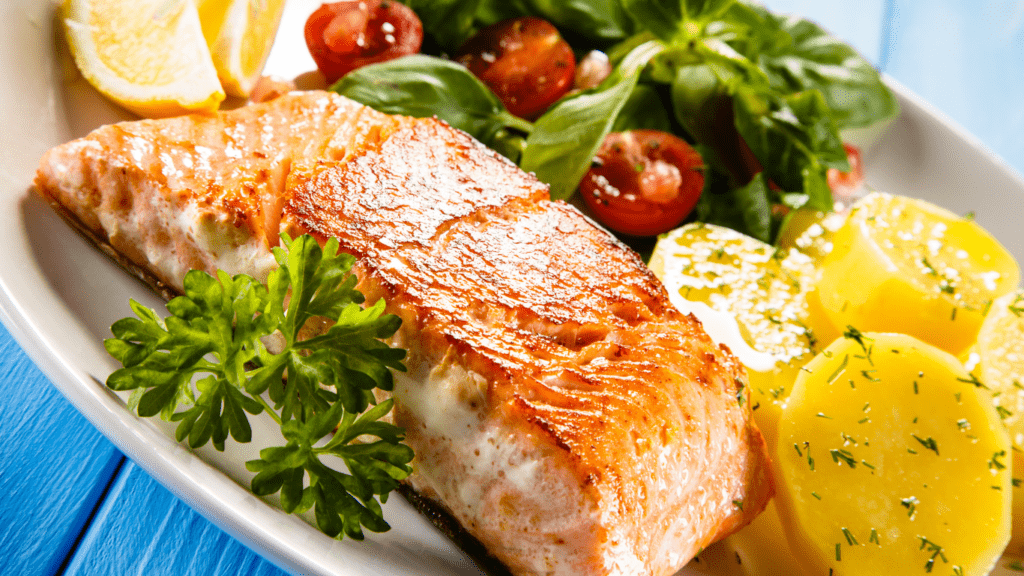The Importance of Post-Workout Recovery
Understanding post-workout recovery is essential for anyone looking to optimize their fitness progress. Recovery helps repair muscles, reduce fatigue, and enhance performance. During exercise, muscle fibers experience small tears; nutrition plays a critical role in mending these fibers and facilitating growth. Protein intake aids this process by providing the necessary amino acids, like leucine, needed for muscle protein synthesis. Incorporating carbohydrates replenishes glycogen stores depleted during workouts, supporting energy levels for future activities.
Recovery benefits the immune system by reducing inflammation and oxidative stress. Consuming antioxidants, such as vitamins C and E, aids in protecting cells from damage. This not only fosters muscular health but also supports the immune system. Hydration remains crucial in this process, as water aids in nutrient transportation and waste removal.
Prioritizing recovery can lead to consistent improvements and minimize injury risks. Those who integrate effective post-workout nutrition and rest tend to see sustained progress in their fitness journey. So, focusing on these elements maximizes the benefits of your workouts while promoting overall wellbeing.
Nutritional Needs After Exercise
Recognizing the body’s nutritional needs post-exercise is crucial for effective recovery and performance enhancement. The type of nutrients consumed can significantly impact the rebuilding and energy restoration processes.
Carbohydrates for Energy Restoration
- Carbohydrates play a vital role in replenishing glycogen stores depleted during exercise.
- Consuming carbohydrates within 30 minutes of completing a workout optimizes glycogen synthesis.
- Optimal sources include whole grains, sweet potatoes, and fruits like bananas.
- These options offer quick energy to aid recovery efforts and prepare the muscles for subsequent workouts.
Proteins for Muscle Repair
- Proteins are essential for muscle repair and growth, offering amino acids necessary for muscle protein synthesis.
- Consuming 20-30 grams of high-quality protein, such as lean meats, eggs, or plant-based options like legumes and quinoa, can facilitate recovery.
- Combining protein with carbohydrates enhances amino acid uptake by the muscles and promotes overall rebuilding.
Hydration for Optimal Recovery
- Hydration ensures efficient nutrient transportation and waste removal from the body.
- Drinking water or electrolyte-rich beverages post-exercise replaces fluids lost through sweat.
- Monitoring urine color provides an easy method to assess hydration levels, keeping them optimal for recovery.
- Proper hydration also reduces exercise-induced fatigue, enhancing readiness for future workouts.
Best Foods for Post-Workout Recovery

Choosing the right post-workout foods boosts muscle recovery and fuel replenishment. Targeting foods rich in protein, carbohydrates, and antioxidants supports holistic recovery.
Protein-Rich Foods
Proteins aid muscle repair by supplying amino acids. I often include chicken, fish, and plant-based options like lentils and chickpeas in my meals. Eggs deliver high-quality protein and beneficial nutrients. Whey or plant-based protein powders offer a convenient source for quick absorption.
Carbohydrate-Dense Options
Carbohydrates restore glycogen depleted during exercise. My go-to choices are sweet potatoes and quinoa, which offer complex carbs and fiber. Bananas and oats provide both carbs and micronutrients, making them ideal for mixing with protein sources.
Antioxidant-Rich Superfoods
Antioxidants help combat inflammation and muscle soreness. I include berries like blueberries and cherries due to their high antioxidant content. Spinach and kale provide vitamins A, C, and E, contributing to overall recovery and health.
Timing and Portion Considerations
Consuming post-workout nutrients promptly optimizes muscle recovery. It’s best to eat within a 30–60 minute window after exercising. During this time, muscles are particularly receptive to nutrients. Rapid intake of proteins and carbohydrates supports muscle repair and glycogen replenishment.
Keeping portion sizes balanced maintains energy without overloading the digestive system. Generally, I aim for a meal that includes an appropriate ratio of protein and carbohydrates. For proteins, 20–30 grams from sources like chicken or tofu suffice. Carbohydrates, such as oatmeal or whole-grain bread, should make up a majority of the meal, facilitating energy restoration.
Individual needs may vary based on workout intensity and type; however, aiming for a 3:1 carbohydrate-to-protein ratio usually supports effective recovery. If necessary, adjust portion sizes to meet personal energy and dietary requirements. Monitoring hunger cues and adjusting intake ensures optimal post-workout nutrition.
Tips for Maximizing Recovery Benefits
Maximizing recovery after a workout involves a combination of nutrition and lifestyle strategies that support muscle repair and energy replenishment. Here are some tips to enhance recovery benefits:
- Prioritize Sleep: Quality sleep aids muscle recovery by releasing growth hormones that facilitate muscle repair. Aim for 7-9 hours of restful sleep per night to allow your body adequate time to recover.
- Stay Hydrated: Proper hydration is essential to optimize nutrient transport and waste removal. Drink water consistently throughout the day, and consider electrolytes if you engage in intense or lengthy workouts.
- Incorporate Stretching and Foam Rolling: Post-workout stretching and foam rolling can improve flexibility, reduce muscle soreness, and enhance blood circulation to muscles, contributing to faster recovery.
- Listen to Your Body: Pay attention to how your body feels after workouts. If you’re experiencing undue fatigue or prolonged soreness, consider incorporating more rest days or altering your workout intensity.
By implementing these techniques alongside a nutrient-rich diet, recovery can be optimized, leading to better performance and reduced risk of injuries.





